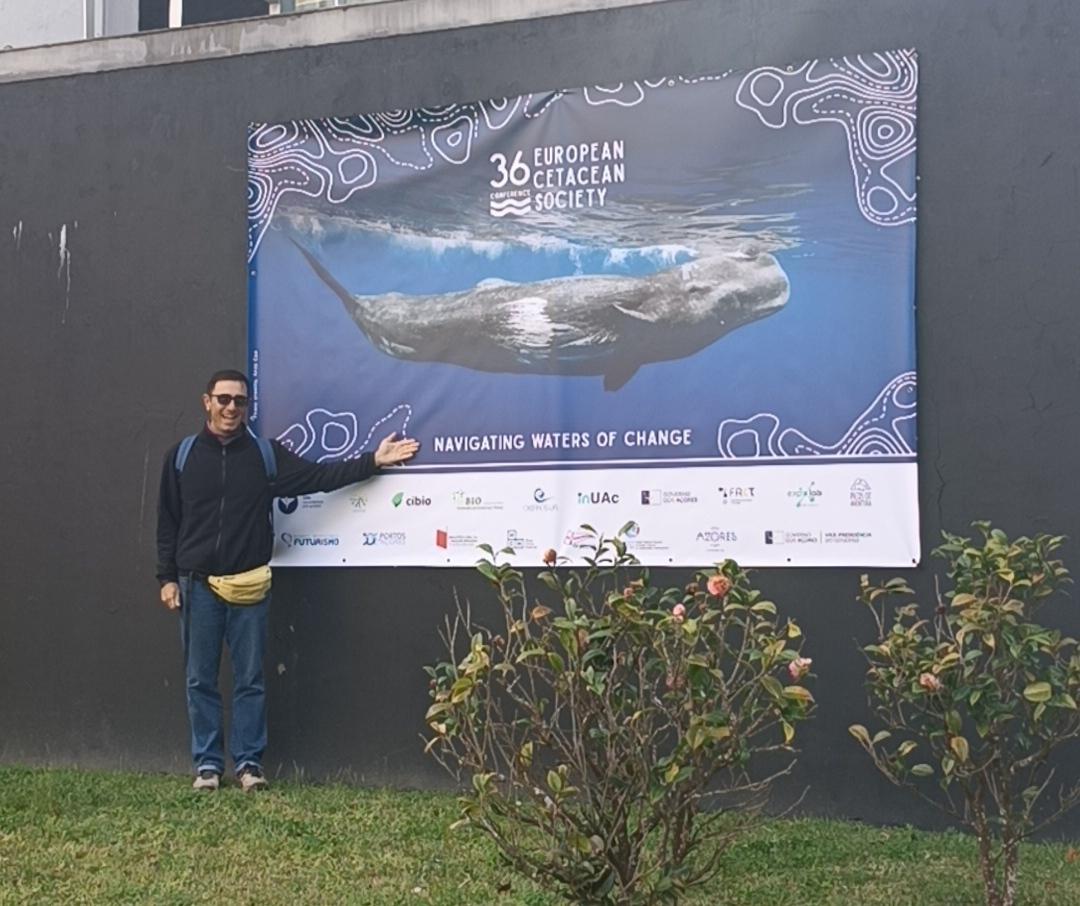ECS Workshop 2025
Workshop Summary: “Marine Mammal Conservation: Ethical Perspectives in a Climate of Urgency”
As part of the 36th European Cetacean Society Conference held in São Miguel (Azores), a full-day workshop titled “Marine Mammal Conservation: Ethical Perspectives in a Climate of Urgency” took place on May 13. It was organized by Volker Smit (M.E.E.R., Germany), Dr. Luigi Bundone and Barbara Putnam (Archipelagos – Ambiente e Sviluppo, Italy), and Capt. Noel Covian (Oceano Whale Watching La Gomera and University of La Laguna, Tenerife).
Noel Covian’s inspiring contribution stood out as a highlight of the workshop, where he introduced his concept “Towards Ethical Navigation: Integrating Cetacean Conservation into Seafarer Training.” In his talk and a follow-up case study, he emphasized the urgent need to rethink maritime education. Current training practices, based largely on the SOLAS Convention (Safety of Life at Sea), remain highly technical and anthropocentric, with little attention given to marine life—particularly cetaceans, who are often the victims of ship strikes.
Covian’s initiative calls for an ethical expansion of the concept of safety at sea, encompassing not only human lives but also the lives of marine animals. He argued that future seafarers must be trained not only as navigators but also as active ocean stewards, with ecological responsibility at the heart of their role. Reflecting on the conference, he described it as a turning point—an invaluable opportunity to share this new perspective with an international audience in a deeply engaged scientific setting.
His conclusion: „Beyond the workshop, the conference left me with a single, pressing question: What are we waiting for? Seafarers urgently need tools and guidance to connect with the scientific efforts aimed at protecting marine mammals. Bridging that gap is essential. That’s the message I take home—ECS conference served as a powerful reminder of how deeply and passionately this scientific community cares, and how much momentum we must carry forward.“
The workshop demonstrated how ethics, conservation, and maritime education can be meaningfully interwoven—and underscored the urgency of addressing ship strikes and protecting cetaceans through targeted training. One concrete outcome was the drafting of an official letter of support from the European Cetacean Society, endorsing the development of a standardized educational module aligned with the International Convention on Standards of Training, Certification and Watchkeeping for Seafarers (STCW). This initiative is currently under review for submission to the International Maritime Organization (IMO), specifically its HTW Subcommittee, which is responsible for overseeing global standards in maritime training and certification.
Moving forward, efforts are focused on integrating this perspective into maritime academies and training institutions as a matter of priority, and advancing it through PhD-level research on “Specific training for navigation in areas with the presence of cetaceans.” These steps represent a significant move toward embedding ecological responsibility into the core of maritime education.
